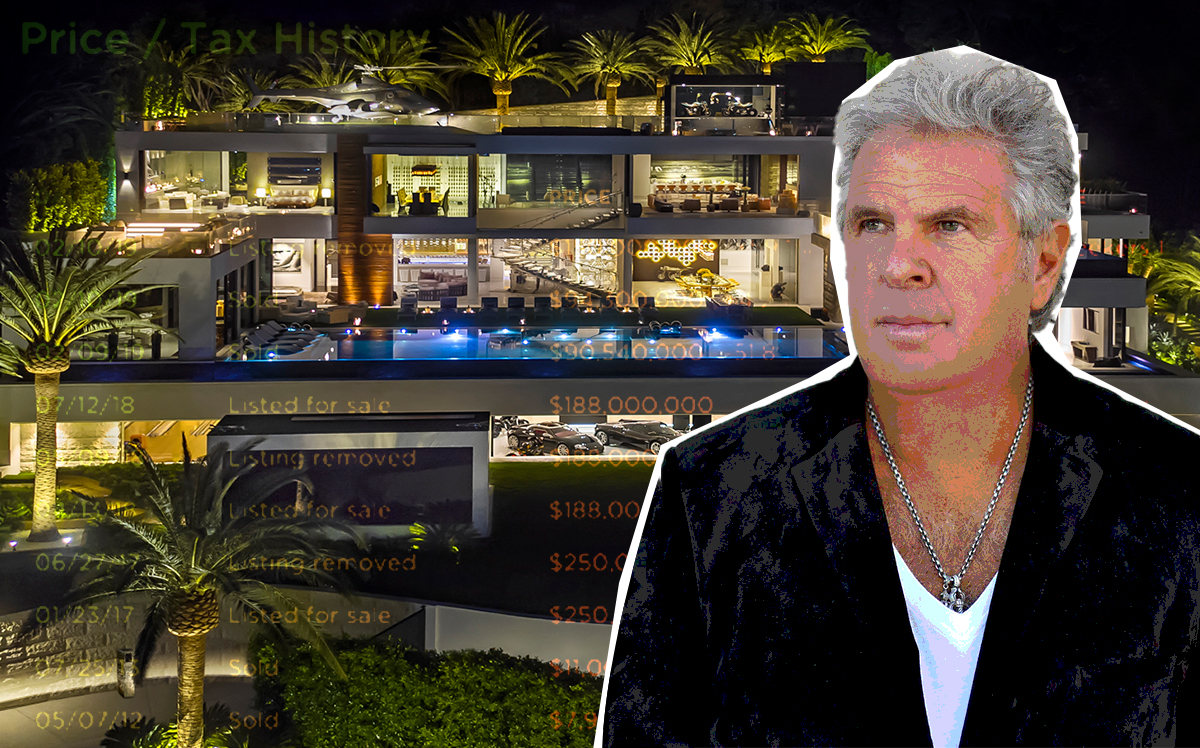Trending
Zillow said Bruce Makowsky’s megamansion was sold. He says no, and sues listings giant
The 21-bedroom LA spec manse was apparently sold 3 separate times this month

Bruce Makowsky’s Bel Air spec megamansion, dubbed “Billionaire,” seemingly has it all. There are 21 bedrooms, 21 bathrooms, two champagne rooms, a 40-seat home theater and a moat-like canal around the property.
The only thing it doesn’t have is a buyer, but until recently that’s not what Zillow was showing. Now, the Los Angeles developer is suing the listings giant, alleging it had falsely reported the $150 million on-the-market mansion as sold. Makowsky filed the suit through his 924 Bel Air Road LLC in federal court this week, seeking $60 million in damages.
It alleges Zillow erroneously published the 38,000-square-foot residence as sold on three different occasions with varying prices. The first time, on Feb. 4, it said the home at 924 Bel Air Road was scooped up for $110 million. On Feb. 8, it showed there would be an open house, according to the lawsuit, which was first reported by Inman.
Then on Feb. 9, a Zillow page reported a $90.5 million sale. And a day after that, it showed the home had been sold for $94.3 million.
Ronald Richards, an attorney for Makowsky, said the erroneous information led to “a real impact causing a loss,” but failed to provide further details. In the suit, Makowsky claims that reporting the property had sold for millions of dollars below its ask “corrupts the listing price dramatically.” Listing brokers Shawn Elliott of Nest Seekers, and Branden and Rayni Williams of Hilton & Hyland, declined to comment.
The property, which also features a Louis Vuitton-designed bowling alley, recently re-listed in January for well below its $250 million original ask, from 2017.
In the lawsuit, Makowsky alleges Zillow allowed a fake user to claim to be the homeowner, and that the company failed to immediately remedy the situation after it was flagged. Zillow does not “manually check” the validity of a user, according to the suit, if that user is able to provide responses to a series of verification questions. In the case of the “Billionaire” mansion, the fake user was able to gain access to the home’s listing page by using a phone number with nonexistant area code, according to the suit.
Zillow spokesperson Kate Downen declined to comment on pending litigation. In an emailed statement, she added the firm “goes to great lengths to display current and accurate data on our site.”
It comes at a time when listings portals like Zillow and Trulia are providing an increasing amount of data to potential buyers. In L.A., the wealth of information sites like Zillow offer on homes have provided breadcrumb trails for burglars at pricey homes belonging to celebrities.
For Zillow, the lawsuit follows a soft fourth quarter, and recent C-suite shakeup, with CEO Rich Barton back at the helm.
As of Wednesday, the listing was back on the market for $150 million. The company was said to be working on updating its verification process.




